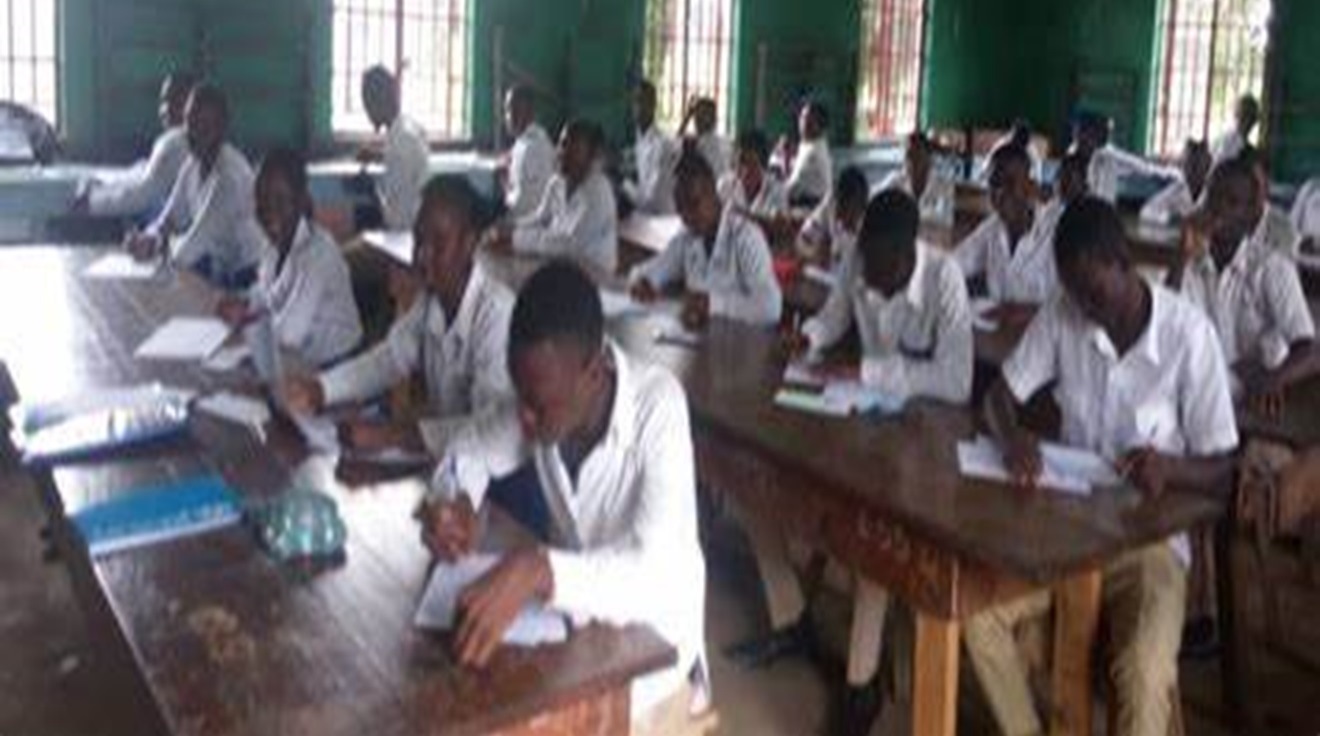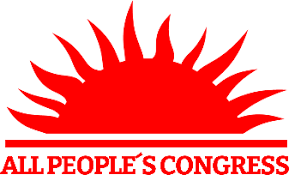Education has long been heralded as the key to development in any nation, offering a pathway out of poverty and opening doors to economic growth and societal progress. In Sierra Leone, education is especially crucial, as it is seen as the cornerstone for rebuilding the nation after years of civil war and political instability. However, a cancer is eating away at the foundations of this vital pillar: examination malpractice. In both high schools and universities, the rate of examination fraud has reached alarming levels, threatening not only the quality of education but also the future of the country.
Examination malpractice refers to any deliberate act of cheating or misconduct before, during, or after an examination, which undermines the fairness and credibility of the exam process. In Sierra Leone, the forms of malpractice are varied and pervasive, taking place in both high schools and universities. These include:
Smuggling in notes or prepared materials: Many students hide notes in their clothing, shoes, or other personal items, bringing them into examination halls to reference answers.
Bribing invigilators: In some instances, students or their parents bribe invigilators to overlook cheating during the exam or to leak examination questions ahead of time.
Collusion: Group collusion, where students share answers during the examination, is common. This form of malpractice thrives in schools with lax supervision.
Examination leakage: This is perhaps the most insidious form of malpractice. Question papers are sometimes leaked to students days or hours before the exam, giving some an unfair advantage. This often occurs due to corrupt officials within examination bodies.
Impersonation: Another widespread practice is for a more capable student or an outsider to sit for the exam in place of a registered candidate.
Manipulation of results: At the tertiary level, there have been reports of lecturers and professors altering student grades in exchange for money, gifts, or other favors.
The fact that these practices occur in both high schools and universities suggests that the problem is systemic. What’s more, these malpractices not only involve students but also teachers, school administrators, invigilators, and officials in examination bodies, creating a complex web of corruption that undermines the very purpose of education.
Examination malpractices do not occur in a vacuum. A combination of factors has contributed to the alarming rise in cheating and misconduct, ranging from individual motivations to systemic failings within Sierra Leone’s educational framework.
In Sierra Leone, there is immense pressure on students to pass national exams like the Basic Education Certificate Examination (BECE) and the West African Senior School Certificate Examination (WASSCE), which are gatekeepers to further education. The pressure comes from parents, teachers, and society at large, where success in exams is often viewed as the only route to future opportunities. In response to this pressure, many students resort to cheating, believing that failure is not an option.
Another factor contributing to the rise in examination malpractice is the poor quality of teaching and learning in many schools. Due to overcrowded classrooms, poorly trained teachers, and inadequate learning materials, many students are not adequately prepared to face exams. Rather than accept failure, some students turn to cheating as a way to make up for the gaps in their knowledge.
One of the major reasons examination malpractice continues to thrive in Sierra Leone is the lack of serious consequences for those who are caught. Even when students are found cheating, the punishments are often mild, if any punishment is given at all. This sends a message that cheating is a risk worth taking. Additionally, the involvement of teachers and invigilators in these practices further erodes accountability, as it suggests that cheating is an accepted norm rather than a punishable offense.
Corruption within examination bodies such as the West African Examinations Council (WAEC) has also contributed to the rise in malpractices. Exam papers are sometimes leaked by corrupt officials for financial gain, and bribery can influence results. The lack of transparency in how examinations are administered and marked creates an environment where cheating is not only possible but also profitable for those in positions of authority.
The economic situation in Sierra Leone plays a role in perpetuating examination malpractice. For many families, education represents a significant financial investment, with the hope that a good education will lead to better job prospects and a way out of poverty. When students fail exams, the cost of re-enrolling in school or retaking exams can be a financial burden. This economic pressure encourages some parents and students to seek shortcuts, including paying for leaked exam papers or bribing officials.
The consequences of rampant examination malpractice in Sierra Leone are far-reaching and devastating, not only for the education system but also for the country’s future.
When students are able to pass exams through dishonest means, the entire educational system is devalued. Diplomas and certificates no longer reflect the true abilities or knowledge of students. This undermines the credibility of Sierra Leonean qualifications, both locally and internationally. As a result, employers may begin to doubt the capabilities of graduates, and Sierra Leoneans may struggle to compete in the global job market.
Examination malpractice fosters a culture of dishonesty and erodes the values of hard work and integrity. When students see their peers succeed through cheating, they are less likely to value the process of learning and more likely to adopt similar unethical practices in other areas of life. This culture of dishonesty can permeate society, leading to broader corruption in other sectors, including politics and business.
One of the most troubling outcomes of examination malpractice is the production of unqualified graduates. When students who have cheated their way through high school and university enter the workforce, they are often ill-prepared to perform the duties expected of them. This can lead to serious repercussions, especially in critical fields such as medicine, law, and engineering, where incompetence can have life-threatening consequences.
Students who work hard and play by the rules are often disillusioned when they see others advancing through dishonest means. This discourages genuine effort and fosters a sense of injustice and hopelessness. Over time, this could lead to a decline in overall academic motivation, further weakening the educational system.
In the long run, the prevalence of examination malpractice poses a significant threat to national development. A nation’s progress is heavily dependent on the quality of its human capital. When a large portion of the workforce is inadequately educated, productivity and innovation suffer. This, in turn, hinders economic growth and development. Additionally, when the integrity of educational institutions is compromised, it becomes difficult for Sierra Leone to attract foreign investment or build partnerships with international institutions.
Tackling the issue of examination malpractice in Sierra Leone requires a comprehensive, multi-faceted approach that addresses both the root causes and the symptoms of the problem.
One of the first steps in curbing examination malpractice is to strengthen the punitive measures for those caught cheating. Both students and teachers involved in exam fraud should face serious consequences, including expulsion or termination, as well as legal action where necessary. Schools and examination bodies must adopt a zero-tolerance policy toward cheating, ensuring that the message is clear: malpractice will not be tolerated.
To reduce the incentive for students to cheat, the quality of education must be improved. This includes training teachers to be more effective in the classroom, reducing class sizes, and providing adequate learning materials. Additionally, curricula should be revised to focus on critical thinking and problem-solving skills, rather than rote memorization, which can encourage cheating.
Reforming examination bodies like WAEC is critical to addressing malpractice. Measures should be put in place to ensure that exam papers are secure and that the marking process is transparent and free from corruption. Introducing technology, such as online testing or automated grading systems, could reduce the opportunities for fraud.
A national campaign to raise awareness about the dangers of examination malpractice is essential. Students, parents, and teachers must be educated about the long-term consequences of cheating, not only for individual students but also for the nation as a whole. Advocacy groups, civil society organizations, and the media have a crucial role to play in promoting a culture of integrity in education.
Lastly, students themselves must be empowered to resist the pressure to cheat. This can be done by creating support systems for struggling students, such as tutoring programs, study groups, and mentorship opportunities. Schools should foster an environment where academic integrity is valued and celebrated, and where students feel confident in their ability to succeed without resorting to dishonest means
The alarming rate of examination malpractices in Sierra Leone is a crisis that threatens the very fabric of the nation’s educational system and its future development. It is a challenge that requires urgent attention from all stakeholders: the government, schools, examination bodies, parents, and students themselves. By addressing the root causes and taking bold steps to restore integrity and quality to the education system, Sierra Leone can move toward a brighter future, one where merit and hard work are rewarded, and the nation’s human capital is developed to its fullest potential.
While the issues surrounding examination malpractice may seem overwhelming, it is essential to understand that the responsibility to combat this crisis does not rest solely on the shoulders of the government or educational institutions. Every segment of society has a role to play in cultivating a culture of integrity and accountability in education.
Government Accountability: The government must commit to enforcing policies that uphold academic integrity. This involves not just punitive measures but also investments in education that improve the overall system. Policies should be developed in consultation with educators, students, and parents to ensure that they are realistic and effective.
Engagement from Civil Society: Non-governmental organizations and community leaders can help to spread awareness and provide support to schools. They can organize workshops, seminars, and forums that engage students and educators in discussions about the importance of academic integrity. Additionally, community leaders can act as role models, demonstrating the value of hard work and honesty.
Parental Involvement: Parents must actively participate in their children’s education by fostering a culture of honesty and diligence at home. They should encourage their children to study hard and emphasize the importance of education as a means of personal and societal advancement. Parents can also become advocates for educational reforms that prioritize integrity over grades.
Student Activism: Finally, students must become advocates for change within their own institutions. Student councils and clubs can take the initiative to promote academic integrity campaigns. By empowering students to stand against malpractice, they will create a peer-led movement that prioritizes genuine learning and ethical behavior.
Examining successful practices from other countries can provide valuable lessons for Sierra Leone. Countries that have made significant strides in reducing examination malpractice often share several common characteristics:
Comprehensive Educational Reforms: Countries like Singapore and Finland have reformed their educational systems to emphasize creativity, critical thinking, and problem-solving over rote memorization. By changing the nature of assessments to include project-based evaluations and group work, these nations have reduced the need for students to cheat.
Strict Examination Protocols: Nations like Japan and South Korea implement stringent measures for exam administration, including secure storage of examination materials and rigorous identity checks to prevent impersonation. By ensuring that examination processes are foolproof, they have created an environment where malpractice is more difficult to execute.
Holistic Approaches to Student Welfare: Countries that address the emotional and psychological well-being of students see lower instances of examination malpractice. Initiatives that support mental health and provide academic counseling can alleviate the pressure students feel, making them less likely to resort to cheating.
In light of the pressing need to address examination malpractices, Sierra Leone must embark on a journey towards educational reform that emphasizes quality, integrity, and accountability. A comprehensive strategy should include:
Regular Monitoring and Evaluation: Establish a system to regularly assess educational institutions for compliance with standards of integrity. This includes conducting surprise inspections during examinations to deter malpractice.
Revising Examination Formats: Encourage a shift from traditional exam formats to alternative assessments that focus on practical skills and critical thinking. Continuous assessment throughout the academic year can provide a more accurate picture of a student’s abilities and reduce the high stakes associated with final examinations.
Scholarships for Honest Students: Implement scholarship programs that reward academic excellence and integrity. This can incentivize students to pursue their studies honestly, knowing that their efforts will be recognized and rewarded.
Building Partnerships with International Organizations: Collaborate with international educational organizations to gain insights and resources for combating examination malpractice. These partnerships can also facilitate knowledge exchange, helping Sierra Leone to adopt best practices from around the world.
The fight against examination malpractices in Sierra Leone is not merely about ensuring that students pass their exams with integrity; it is about safeguarding the future of the nation. The education system must be a reflection of the values of society—a place where hard work, honesty, and integrity are celebrated.
As stakeholders in education, from policymakers to students, we must come together to confront this issue head-on. By fostering a culture of accountability, investing in quality education, and implementing strong deterrents against cheating, Sierra Leone can reclaim its educational integrity and chart a course towards sustainable national development.
Education should empower individuals, uplift communities, and drive progress. Together, we can ensure that the next generation of Sierra Leoneans is equipped with the knowledge and skills they need to contribute positively to society, free from the shadow of examination malpractices. The time to act is now—let us rise to the challenge and forge a brighter future for our nation.













